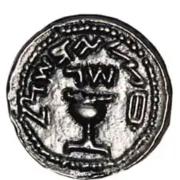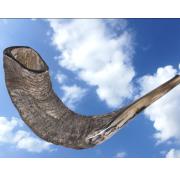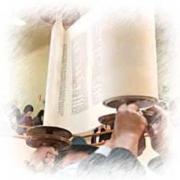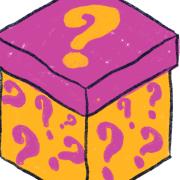The Thoughts Behind The Empty Pit
"And they took him and cast him into the pit. The pit was empty; there was no water in it." Vayeshev 37:24. It is puzzling that the Torah mentions that the pit was empty. Why would I need to know that? If you ask me, they are in the desert, and if there is water in the pit, it would be called a well. Why does the Torah specifically mention the lack of water in the pit?
I think the answer may be hiding in a few places in the Torah. Let's start with the first key. Yosef, וְה֣וּא נַ֗עַר - Ve Hu Naar, Rashi explains, "And He, Being a Lad - His actions were childish: he dressed his hair, he touched up his eyes so that he should appear good-looking."
But I believe there's more to it.
Ve Hu Naar - And He, Being a Lad, can also be interpreted as him having a child-like imagination. It seemed as if he was a dreamer with his head high up in the clouds. Maybe that is why when he saw the dreams, he was able to come up with great explanations for his and other people’s dreams because he thought out of the box.
So, after Yaakov Avinu sent him to check up on his brothers, Yosef, being the dreamer he is, wasn't just walking to his brothers; his mind was thinking. And this time, he was thinking about Kayin and Hevel.
Our job in this world is to fix what was broken before – to make the Tikkunim - and Yosef was a great example of this.
In Parashat Bereshit 4:9, Hashem said to Kayin, "Where is your brother Hevel?" Kayin said, "I do not know. Am I my brother’s keeper?" And this is what bothered Yosef that day. Being the most hated one in the family, he felt that vibe between Kayin and Hevel. And this is where the Tikkun or fixing was being done...given a chance, he thought - he could fix Kayin's error.
And with these thoughts, he came to Shechem, but there he met a man. Chachamim tells us it was an angel, and when that man asked him, who is he looking for, he said: My brothers do I seek - אֶת־אַחַ֖י אָנֹכִ֣י מְבַקֵּ֑שׁ, Parashat Vayeshev, 37:16, but as you know in the Sefer Torah the Nekudot - the vowels are missing and the word אַחַ֖י - My Brothers can also be written as Achi, so at the end, he meant: אֶת־אחִי אָנֹכִ֣י מְבַקֵּ֑שׁ and that makes it as - My brother do I seek.
Fully determined to fix Kayin’s error and with full understanding of why Kayin killed Hevel, Yosef felt that no matter the amount of hate Yosef had seen from his brothers, they were as a Brother to him, and he was looking not for them but for him, all as one. And with this thought, he went to the city of Dotan.
But Yosef didn't stop there; he asked Hashem for a sign that he was on the right track, that his thought process was correct, and his Tikkun was noticed above.
He didn't have to wait too long, because when he approached his brothers, they took off his colorful tunic - "And took him and cast him into the pit. The pit was empty; there was no water in it.", Parashat Vayeshev 37:24. No water in it...?! Notice how the Torah highlights that water was not there.
In Parashat Bereshit, after Kayin killed Hevel, Hashem came to punish Kayin. He asked him, Where's Hevel? Kayin answered, וַיֹּ֙אמֶר֙ לֹ֣א יָדַ֔עְתִּי הֲשֹׁמֵ֥ר אָחִ֖י אָנֹֽכִי׃ - And he said, "I do not know. Am I my brother’s keeper?"
So, Hashem said, וְעַתָּ֖ה אָר֣וּר אָ֑תָּה מִן־הָֽאֲדָמָה֙ אֲשֶׁ֣ר פָּצְתָ֣ה אֶת־פִּ֔יהָ לָקַ֛חַת אֶת־דְּמֵ֥י אָחִ֖יךָ מִיָּדֶֽךָ׃ - "Therefore, you shall be more cursed than the ground, which opened its mouth to receive your brother’s blood from your hand." Meam Loez says that the sin of the Earth was that it left no trace of blood, as if it wanted to hide the blood completely so it could not be discovered, and thus it completely swallowed the blood.
So, Yosef got the sign he asked for - no water in the pit when he was thrown into it, just like the incident with Kayin killing Hevel - no blood was left visible on the ground.
But let's go even further. In Parashat Vayigash 45:12, when Yosef HaTzaddik opened up to his brothers, he says the following:" וְהִנֵּ֤ה עֵֽינֵיכֶם֙ רֹא֔וֹת וְעֵינֵ֖י אָחִ֣י בִנְיָמִ֑ין כִּי־פִ֖י הַֽמְדַבֵּ֥ר אֲלֵיכֶֽם׃ - You can see for yourselves, and my brother Benyamin for himself, that it is indeed I who am speaking to you." Rashi said," ועיני אחי בנימין - And the eyes of my brother Benyamin - just as I harbor no hatred against Benyamin, my brother, for he was no party to selling me, so is my heart free from hatred against you."
But maybe it can also mean, just like Benyamin, my brother looks at me and sees me as His Brother, so am I, looking at all of you and seeing you all as My Brother - Achi, and not as Achai - My Brothers. He was not looking for brothers in Shechem; Yosef HaTzaddik was looking for them all, as a Brother looks for His Brother.
Kayin fell short by not being able to coexist with one brother, and was not content with his lofty share, even though he had more than plenty., Yosef HaTzaddik has proven that he was his brother's keeper—the caretaker of the entire family. When the time came and the family moved to Egypt, he took care of his father, his brothers, and their families, thus making his contribution to the atonement of Kayin's sin.
Shmuel Katanov














